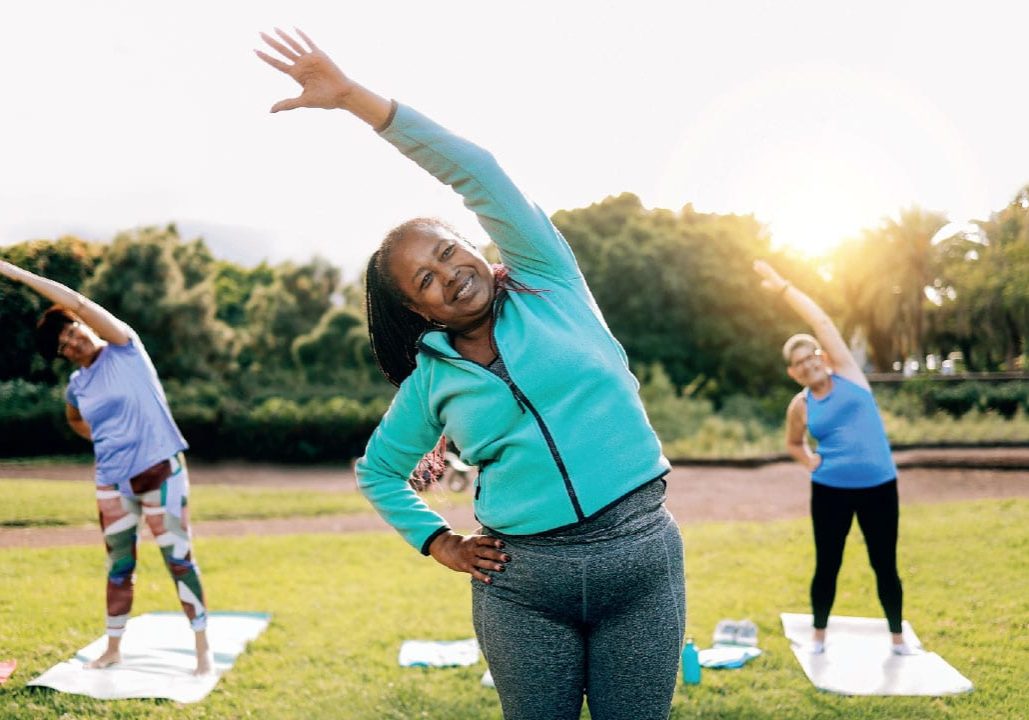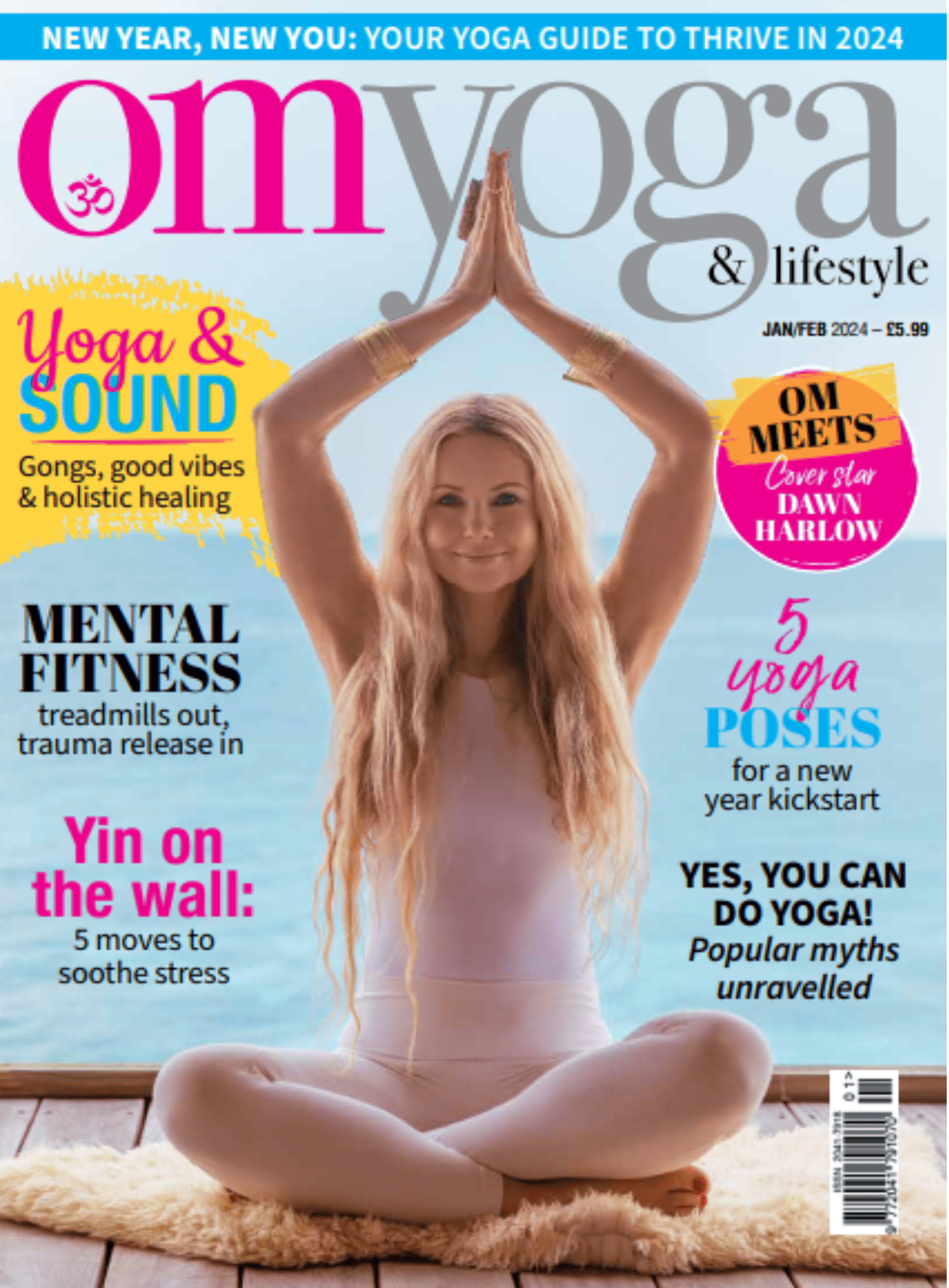
Be Kind
Life is challenging enough without layering insult to injury. By Lauren Bloxham
Reading time: 5 minutes
The gritty reality of living right now is enough to knock us off balance. Whatever is at the forefront of your conscious mind, whether it’s the cost of living, war, climate crisis, the darkness of winter, health, family, friendships or something else… the world is presenting us with some serious challenges to face. And just as we become familiar with one challenge it can sometimes feel as though another almighty implosion (or literal explosion) comes along to re-enforce the message that ‘all is not well’
Yet the façade of yoga is one of peace, joy, happiness and vibrant wellbeing. It’s a polarity of images that can be hard to reconcile, and one that should be questioned, particularly when times are tough and the challenges we face are the kind that require us to re-order our perception of the world.
Given that for most of us we are not living in ashrams and are not spiritual gurus, the truth is probably that under the façade there is a lot more gritty living actually going on than our images of ‘yoga’ classes would lead us to believe. The yoga industry is built on householders like you and I, those of us functioning within society and facing the collective challenges that we as parents, partners, employees and bill payers face. How much peace then, is it possible to find as we face societal breakdown, climate change, war and the increasing risk of life-threatening disease?
Whether we like it or not, and whether it’s at the forefront of our minds, or we’ve banished it to the pits of denial or dissociation, the reality is the same, and finding peace within what feels like increasing chaos can feel impossible, despite what the imagery conveys.
Life does and will continue to knock us off balance, to a greater or lesser degree, at various times throughout our existence – and we will need to ask difficult questions of ourselves when it does. Is this right for me? What do I need? How did I get here? Which way now? We need to be able to face what it is we’re most afraid of…and this is where the lessons of yoga, not the image of yoga — I mean the rich philosophy and science of yoga — can be most poignant.
Coming back to basics within our yoga practice can be a great way of regaining balance. In any challenging balance asana, when we can’t find our centre, we return to the ground, we return to our focus and we rebuild the pose from the still point. The same is true of our subtle experiences and this is where philosophy can serve us well.
What is the first lesson of yoga? Depending on where you look, this may be different to each of us, but starting with the eight limbs of yoga we arrive with the first of the yamas – Ahimsa — which translates as ‘do no harm’.
So, in the subtle realm of overwhelm, anxiety, fear, guilt, shame and judgement it’s appropriate to apply the lesson subtly. ‘Do no harm’ doesn’t just mean physically do no harm; it means in all the ways harm can be done — and in the context of our minds, it extends to not beating ourselves up mentally.
When life throws us a curve ball our inner shadows rear their ugly heads to remind us that we’re terrible people, not good at managing, not trying hard enough, doing enough, saying enough, or saying too much. You know the story, it’s probably not too dissimilar to mine.
It’s as though we have a default switch that likes to layer judgement upon shame upon financial, health, relationship or work crisis (delete as applicable) — and this is what the lesson of Ahimsa is really teaching us. Do no harm. It means go gently on yourself when life is already hard. It means activate the buffers, call in the support, slow down, speak up and soften the approach. Soften the harmful mindset. Stop beating yourself up.
Think for a moment about a challenge you’ve recently faced, whether direct, or indirect. Let’s face it, listening to the news right now has the power to deflate us. The challenge in and of itself is already enough. That’s all there is to it. But if we mentally entertain the narrative of judgement: ‘I should have done something differently’, ‘I’m terrible at managing money’, ‘I didn’t work hard enough’ then we add a harsh layer to the existing challenge. This is the kind of veneer that locks in the disappointment, shock, frustration, or rage of it all and plays it on repeat. It’s the kind of veneer that leads us to want to paint a rosy picture and idealise peace.
It’s not to say don’t be reflective. We can learn new ways of being from the challenges we face. It doesn’t mean change is outside of our control, although sometimes it really is. It simply means bring some light into the moment rather than darkness. Bring support rather than abandonment and bring understanding rather than judgement. Bring choice rather than harsh rules. Bring acceptance rather than shame. In this way, whatever transformation needs to take place, takes care of itself gently.
The first rule of yoga (and it’s a non-negotiable if we’re truly embarking on a yoga journey) is: be kind. The place to return to when life is metaphorically (and sometimes literally) breaking us down, is still, be kind. The only way to survive what we imagine is un-survivable is to be kind. In the words of my ever-gracious teacher, Cathy-Mae: ‘Go gently’.
Practice yoga with Lauren Bloxham online at Sabda.uk, movement, mindfulness and meditation for slow movers and gentle souls. Join her on retreat, ‘The Wild Medicine’ at Bala Brook, Dartmoor National Park 16th-19th May and 14th-17th November 2024. Follow her words of wisdom on Instagram @blackdogliving




